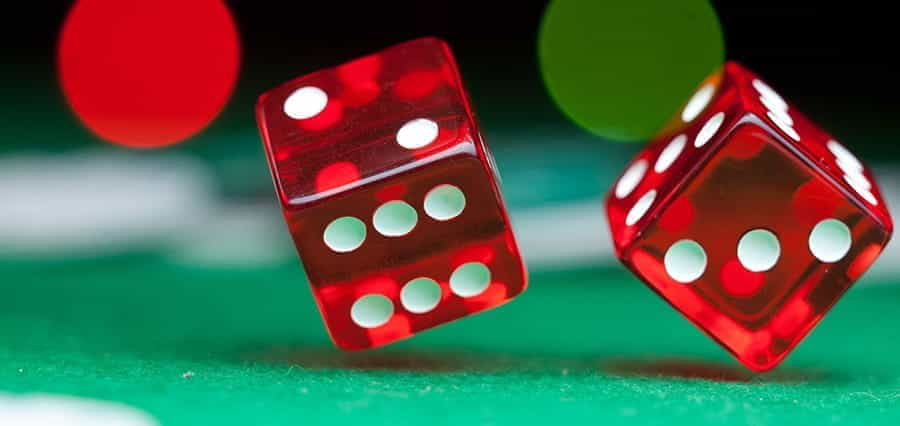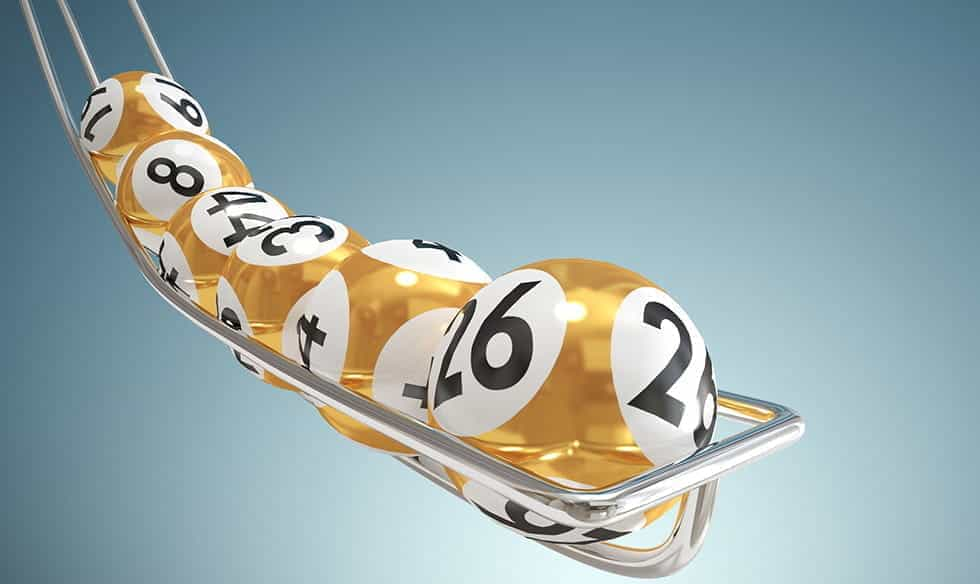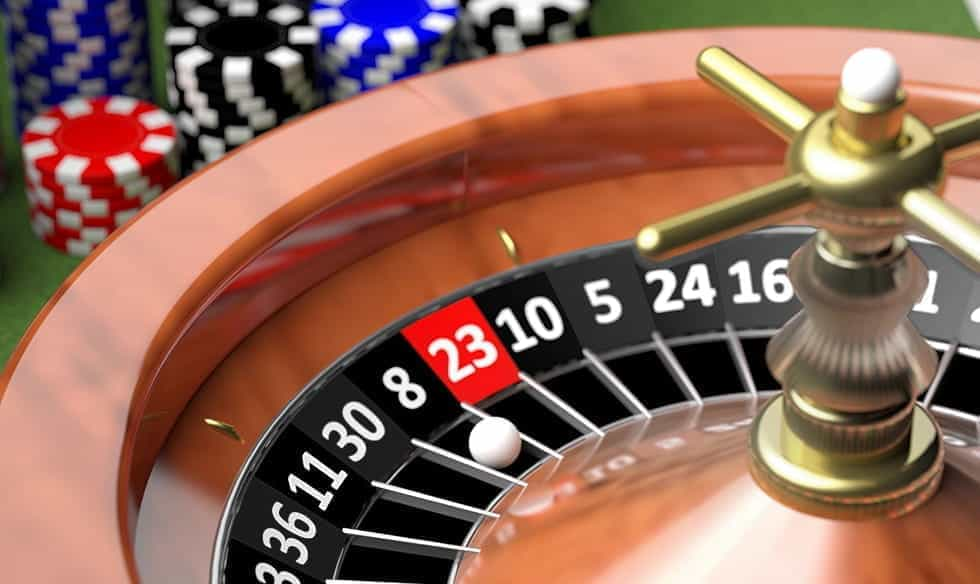
The Gambler’s Fallacy: A Breakdown
Although the gambler’s fallacy tends to appear in situations of gambling, it is a psychological phenomenon that can be present in a number of other decisions that involve rationalising your next manoeuvre – especially when an element of randomness is involved. It is the result of someone essentially trying to either fool logic or fool themselves into thinking that they have a grasp on the probability of certain things happening. If it sounds like it might be a little difficult to understand, then keep reading as we unpack everything to do with how a gambler’s fallacy might manifest.
We want to point out that this article is not a guide on how you can overcome illogic to be successful at winning. This is rather an exploration of how so many people can find themselves in such tricky situations in gambling, and how you can avoid it too. In saying that, the knowledge contained in this post may not only help you gamble more responsibly but help you to read opponents who may be blinded by the gambler’s fallacy and use this to your advantage. If you are looking for good ways to avoid falling into the trap, check out some sensible roulette stategies instead.
An Explanation of Gambling
It may seem slightly unnecessary to explain gambling on a gambling website, but if we’re going to be clear on how the fallacy works, it’s important to restate the fundamental truths to it. At its essence, gambling is the act of betting on the likelihood of a random event happening, with the reward for guessing the outcome either a financial or material gain. This is always a good thing to keep in mind when gambling for real money. There are three facets to gambling:
- The Wager – the price that has to be paid to play and that stands to be lost if you are unsuccessful
- The Risk – the possibility that you may not finish your game with your wager being returned to you. There is no certainty that what you have guessed will happen will come to pass
- The Prize – the reward that you will receive if your guess was correct, close to being correct or one of the closest to being correct, depending on the rules attached to the wager
It tends to happen, especially with casino games, that the event that you and your opponents have wagered on happens right away, such as with the game of roulette or the drawing of cards. Sometimes, though, the event may take longer to happen, which can over time lead to changing odds and larger opportunities to win. This trend can be seen easily in the modern gambling industry, with some sites even allowing you to bet on just about anything from who will win the next presidential election to how warm the average daily temperature will be in 2024.

Outside of its literal meaning, the word ‘gambling’ can sometimes translate into something beyond its understanding as a game of chance. Because the activity involves high-risk decision making, luck, and beating unlikely odds, we may say that someone who is drinking excessive amounts of alcohol but has to work the following morning is gambling with their job, or someone with an unhealthy lifestyle is gambling with their life. Because these people are making decisions that have some risk involved in them and an element of luck for the positive outcome happening, they can be lumped together with the actions of a grandma popping coins into a slot-machine or an amateur seated at a poker table.
An Explanation of a Logical Fallacy
Some may think that a logical fallacy is simply stating or believing an untruth in the belief that it is the truth. This is only half right. The core of a logical fallacy is the failure to form a reasonable conclusion based on the information that is provided because the logic that was applied to the solving of the problem or construction of an argument was incorrect. They are tricks of thought that many of us may revert to without realising and are in no way productive pathways to an informed and reasonable result.
The use of logical fallacies tends to be adopted by politicians and the media into tricking people to vote for them or get them to believe in something. They are incredibly powerful because of their ability to spin nonsense as seemingly-reasonable ‘truths’ and distract us from the real meaning behind something. It was the great debater Aristotle who first began to systematize fallacies into a list. His most famous, about two other very human philosophers Coriscus and Socrates, is:
- “Coriscus is different from Socrates”
- “Socrates is a man”
- “Therefore, Coriscus is different from a man”
Can you see how his misuse of reasoning led him to state an illogical error? The same goes for politicians with the commonly used Straw Man fallacy. This refers to the act of accusing your opponent of believing a certain thing that they may not (building their beliefs out of straw), then blowing down this false argument of theirs and proving to the world how wrong they were and how smart you are. Despite there never being a set of beliefs in the first place, you trick people into thinking that you are logical when you really are not. This act of creating a false belief or investing in warped reasoning, then either believing it or acting against it, is a logical fallacy to its essence. It is a poor conclusion stemming from creating an invalid argument as opposed to misunderstanding the truth.
It may sound crazy, but if you truly study this list of common logical fallacies, you might be unpleasantly surprised to realise not only how much of it you witness every day but how often you may think, speak, or argue in them.
So What is the Gambler’s Fallacy?
If you’ve put together two and two, you’ll probably have guessed, albeit correctly, that the gambler’s fallacy refers to a lapse in logical reasoning that is prevalent among gamblers. However, just as the word gambling can be applied to behaviours outside of the realm of poker play and roulette spins, so too can the gambler’s fallacy. So what does it mean exactly?
It means the belief, held by gamblers or anyone involved in a repetitive action that takes in to account chance and luck, that a future outcome of an event can be predicted based on the outcomes of previous events. Also referred to as the doctrine of the maturity of chances, the gambler’s fallacy involves a number of factors to define it as such.
Firstly, the events that the gambler has placed a wager on are completely random. As each individual event in a series of events is a standalone occurrence, the probability of something happening is not affected by what has happened in the past. A fair dice throw is its own dice throw, just as the spin of a roulette wheel is its own event. Nothing that happened before will change this. Because coincidences occur and because of our very human tendency to see patterns where there are none, people will overlook the fact that random events can be strangely uneven.
It’s the belief in looking at patterns in past events that aren’t there that can lead many to believe that there’s a larger system in motion, and that the future can be accurately predicted because of it. If this belief begins to be held deeply, then it’s common that rather than throw away the belief in the pattern when an event in the sample doesn’t match up to it, the illogical person will instead look at the event as an outlier. Our bias blinds our reasoning and leads us down a rabbit hole of illogic.

This rabbit hole can manifest in a sense of feeling as though one can predict future lottery numbers based on previous draws and in the same belief that they should never change their lottery numbers when there is no difference whatsoever in doing so. The future event is completely random so it doesn’t matter. In saying that, there are certain gambling activities that involve changing probabilities as events progress. Blackjack, for example, changes as previous cards are drawn from the deck, so the probability of drawing previously drawn cards is obviously impossible and this can be used to logically effect decision-making. However, the chances at which the unlaid cards remain the same and should not be anticipated according to any foolish pattern.
Where Did the Gambler’s Fallacy Come From?
This is an interesting question, and as with any psychological conundrum, it can be hard to properly understand. It comes down to human nature, after all, and it would by no means be radical to suggest that human beings do strange things all the time. However, there are some behaviours we can pinpoint and understand due to psychological studies in to how we can trick ourselves into believing false stories. For evolutionary purposes, it seems that humans developed certain cognitive mechanisms that saw the development of our belief in the significance of random events happening, as did the ability to recognize symbols that we could later use to predict tides, weather events, and develop languages. But like any development, these abilities were a double-edged sword that allowed for illogic and superstition to reign supreme.
Historical Examples of the Gambler’s Fallacy
A long time ago, the gambler’s fallacy was once named the Monte Carlo fallacy. This is based on a true event that happened at the Casino de Monte Carlo in Monaco. One night in 1913, millions of francs were lost by a string of players who assumed that because a roulette wheel landed on black 26 consecutive times, that red was surely due to be the next hit. They assumed that because the chances of it hitting either one of two colours must have been equal, it meant that for every hit on black, it should equal one hit on red. As the spin of the roulette is as random as a toss of the coin, it’s never safe to assume that logic can be applied to it. The gamblers at the Casino de Monte Carlo assumed that it would be unnatural for the wheel to deviate, and not only that but a mathematical anomaly. It is very easy to fall into the trap of the fallacy when playing online roulette, as you can see the same result come up time after time, meaning that it seems sure to go the other way eventually.

But although it is true that statistically, it could land on both colours equally, one night of spins may not be long enough to garner a large enough sample size to realize this resulting in an even 50/50 landing on both reds and blacks. As well as that, the belief that the wheel would not land on black again as it already had so many times before would lead them to trying the same thing over and over in an attempt to beat it. In this humorous example, not only did the gambler’s fallacy fool one person, but it collectively persuaded a number of people to act illogically based on a collective presumption that the future could be predicted by the events of the past.
The Fatal Error
As explored in the example above, the gambler’s fallacy thrives on people having a misunderstanding of probability. To combat this, it’s important to understand a law concerning probabilities called the Law of Large Numbers. This law states that as a sample size is increased, the average result of the registered outcomes converge to the mathematical probability. Sound confusing? Let’s use a coin toss, with its average outcome of 50% for landing on either heads or tales, to simplify it. The law suggests that if you were to continually toss a coin, you are more likely to get closer to reaching the average outcome of 50% the more you toss it.
This then suggests that if the sequence of events, that is, the amount of coin tosses, is decreased, then you will be less likely to reach the average outcome of 50% for landing on both heads and tails. It’s easy to forget this while you are caught up in the thrill of gambling gameplay, but believe us – it’s wise to remember. You could save yourself a lot of money. The same logic needs to be remembered when playing even-odds games such as baccarat.
Another misunderstanding of probability stems from the improper interpretation of semantics. For example, the phrase “1 in 100 chance” can be presumed by people to think that if an event were to happen 100 times, a predicted outcome would definitely happen once. This is not true nor is it what the phrase truly means. In reality, every single event is an individual occurrence that is not dependent on previous or future events. Still, people can be easily lured to the dark side of logic when they begin to see that these events are not independent. For example, if I were to flip a coin and ask you what the chances are of the coin landing on heads or tail, you would say 50%. But if I were to ask you what the chances were of it landing on heads if the last 10 tosses landed on tails, you would probably be more inclined to guess tails. The use of language can and does confuse people into acting illogically every day.
Other Related Fallacies
There are a number of other ways that gamblers can fool themselves with to justify their illogical behaviour. Whether players assume that there’s a sense of fairness or that randomness is not to be trusted and that there are actually patterns at play, they are leading themselves down the wrong path. Below, we will explore a number of other ways that gambler’s can guide their actions into the dark unknown.
The Representativeness Heuristic
When someone applies a mental technique that is not completely rational or optimal but leads to an immediate result, that is called using a heuristic. For example, rules of thumb or making an educated guess would be classed as heuristics. A representative heuristic is when people guess the probability of an event happening by comparing it to other outcomes of events that have happened previously. Although this is still grounded in our own abilities to see patterns that in some instances may be there, it mostly overlooks the use of mathematics in our decision making.
For example, if we were to be asked the probability of rolling a die 10 times and it landing on 1 every time, we would say that the likelihood of it happening were if not impossible, then extremely unlikely compared to any other specific combination of numbers. This is because previously, we would have seen that usually a die will reveal a new number with every throw, and few if any of us would have seen it land on the same number 10 times in a row. Nevertheless, mathematics stipulates that the 10 rolls of 1 are just as likely as any other combination of numbers.
An Explanation of the Clustering Illusion
Similar to the representative heuristic is what is called the clustering illusion. This is the name for what we described earlier as when people see patterns or order in a series of random events. It’s a common tendency for people to see patterns in small samples, and as humans it’s hard for us to not impart meaning to our observations or presumed symbols. We benefit from recognizing patterns and symbols as it helps us to learn and understand foreign concepts, yet we also are hindered by seeing them when we assume that patterns exist that aren’t there. We can make assumptions about a larger population because of what we see in a small sample size, choosing instead to be blinded by our illogic rather than to even consider what we have observed as mere coincidence.
Gambling Must Be Fair…Right?
Certainly not. Many gambler’s believe that if they have had a long streak of losses and have been taken down by the house all night, then they are due for a big win at the end of it. The truth is, gambling, especially at casinos, is not built on fairness and in fact is a thriving industry because of that. The uncertainty of taking the risk and wagering on a random event doesn’t guarantee anything, no matter how many times you have won or lost. Fairness is not a concept that you should bother to float around when playing games of chance, so don’t let your sense of universal justice lead you in to a potentially longer and more damaging losing streak.
More Fallacies
One gambling fallacy, called the retrospective gambler’s fallacy, concerns itself with a player concluding that a certain positive rare occurrence in the game is the result of a sequence of many necessary negative-occurrence-yielding attempts. Again, he is not looking at the events as independent of each other but as a connected sequence. It can be applied in the logic that rolling three sixes on a die is something special that is unlikely to occur again, as opposed to it being just as probable as any other sequence of events that could happen next.
This is closely related to the hot hand fallacy. It gets its name from its application to basketball players in the assumption that if a player scores highly at the beginning of the game, they will continue to do this for the whole match. This might mean keeping a player on court whilst overlooking true variables like the players potential fatigue or injury in order to keep them scoring. Both fallacies rely on over-valuing recent outcomes, but where the roller of the die believes the event won’t happen again, the hot hand believer assumes the event will keep happening.
Additionally, there have been examples recorded where biases were used by a gambler to win large, but this had less to do with biases in thinking as opposed to biases in the variables at play. In 1873, a man by the name of Joseph Jagger used one particular roulette wheel to make what seemed to be ‘educated guesses’, and managed to win a lot of money doing so. How? He enlisted a team of six people to observe and record the wheel for days before his arrival, which gave him a sample that could determine if the wheel had a bias for one colour or another. Based on his engineering background, he correctly surmised that a wheel could not be balanced perfectly in those days, and was bound to give favourable odds to one colour in particular. This may seem like a confirmation of fallacies, but in reality Joseph Jagger was employing mathematics to make his guesses and employed a truly educated understanding of probability in his decision making.
Other Manifestations of the Gambler’s Fallacy
As we mentioned before, the gambler’s fallacy isn’t necessarily limited to those who are gambling. There are a number of situations where people’s reasoning may fall prey to the gambler’s fallacy. A few examples of such situations include:
- Guessing the Sex – There are documented instances when, back in the days before advances in medicine allowed us the ability to know the sex of our child, people would make a presumption of their unborn child’s gender based on the sexes of recently born children. For example, if in a village there were six pregnant women, and five of those women birthed boys, then the last woman should also expect a boy. These parents are exhibiting the fallacy of seeing a pattern in a small sample size and applying it to the whole.
- Should I Invest? – It’s not uncommon for some investors in property or the stock market to base their investing on the belief that repeated increases (or decreases) in value over a number of trading periods will be followed by a reverse in the trend. Rather than base their trading on the true value of the company or property they are investing on and other reliable variables, they are fooled into thinking that they must stave off a false inevitability. The belief in this fallacy can undoubtedly lead to considerable financial losses.
- Shell Hole Fallacy – During the First World War, there were some soldiers who believed that if they took cover in an impact hole, they faced better chances of survival as it would be unlikely for shells to hit the same spot again. It seems that this assumption is the result of misunderstanding the multiplication rule. This rule suggest that if there are 500 enemy cannons firing at you, the probability of being hit by one of them is 1/500. The probability for two hits in the same spot is 1/500 by 1/500 – making it many times more unlikely. However, this doesn’t account for the fact that once all of the cannons have been fired, they will shoot again, which will again make the probability of one cannon hitting that spot 1/500. On top of this, the assumption assumes that there is randomness to cannon fire when in fact, cannons are aimed purposefully to hit as many targets as possible.
- Experiments Gone Wrong – Although we would love to think that our trusted scientists are immune to the fallacy, a number of peer-reviewed articles suggest otherwise. These articles have found that while researching, some scientists can make certain assumptions and decisions about the sample size that should in fact have been experimented more vigorously.
Scorsese’s Portrayal
In 1995’s classic gambling film Casino directed by visionary filmmaker Martin Scorsese, there are a number of scenes that show character’s behaviours motivated by the gambler’s fallacy.
SPOILER ALERT
One memorable scene depicts a high-stakes player who after winning and leaving, is tricked into returning to the casino and blowing more of his cash then he won. It depicts that although he was up and his good luck was running high, the odds are against you and you will probably lose more money in games of chance in the long run. Another scene depicts a casino worker getting fired for not removing a slot machine that rewarded the jackpot three times in 20 minutes, despite this being a pure coincidence. It shows that even casino owners are susceptible to the gambler’s fallacy, and especially where money is concerned, everyone is liable to act irrationally.
How Dangerous Is The Gambler’s Fallacy?
In many instances of problem gambling, researchers have found a strong tendency for these gambler’s to employ fallacious reasoning in their decision making. However, this isn’t to suggest that this is the root cause of their addiction. Problem gamblers tend to resort to gambling to escape their stresses, loneliness and anxiety, as well as the thrill of risk-taking and being rewarded that is characteristic to many addictions. Fallacies may be employed by these people to continue gambling when they should stop, or try to dig themselves out a financial hole, or it may occur in these people’s reactions to gambling long before the addiction forms in the first place. What is known is that problem gambling is a multifaceted issue and needs to be understood as a problem beyond just poor thinking habits.
What To Do With This Knowledge
You have a couple of options to consider after reading this article. Firstly, you could realize that understanding this fallacy could lead you toward a lifetime of good decision making. By knowing it, recognizing when you’re using it and then avoid it, you can ensure that your actions not just in the casino but in life can be informed by reason rather than superstition. As humans, we will always naturally revert back to our predispositions to ignore rationality and allow our emotions or warped assumptions to lead us, just as gamblers did at the casino in Monte Carlo.
The alternative is to ignore all of this in favor of believing your own superstitions. Perhaps you once had a streak of luck one time that your belief in certain biases guided you to. Perhaps you played the same numbers on the lottery for every week of your life and won a sizeable amount. Perhaps you even employed the same reasoning to predict the birth of your child based on the sexes of your neighbor’s newborns. But believe us, if you are going to choose to ignore the reason and logic outlined above in favor of making assumptions on patterns you have previously found in coincidences, then you’re doing a great job of employing the gambler’s fallacy.



